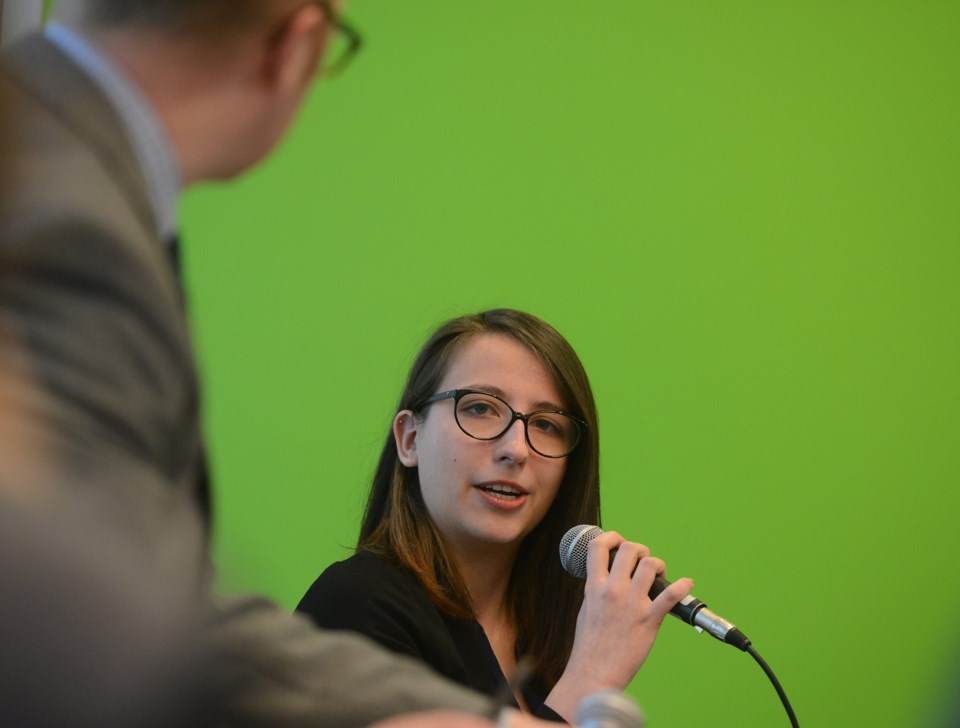The media landscape is changing and the City of Guelph needs to do a better job of getting its own word out.
That was one of the many messages delivered Friday at City Hall during a panel discussion on the relationship and role of and between media and government.
Organized by the city as part of its Open Guelph initiative, the panel discussion included Joey Coleman, an independent Hamilton journalist who runs ThePublicRecord.ca, Jane Lytvynenko, editor at the crowdfunded independent news site CANADALAND, and Scott Tracey, former city hall reporter at the Guelph Mercury and currently a columnist with GuelphToday.com.
"The city has to be more proactive in getting the word out," said Tracey. "It's one thing to say you are 'open.' It's another thing to be 'open.'"
Coleman said the closing of the Guelph Mercury earlier this year was a "gut check" for the city, which he feels offers a huge opportunity for independent journalists to flourish.
Earlier Coleman urged the city to bypass the media when it comes to getting information out to the public. That technology today offers the organization the opportunity to just open it up to the public.
The hour-long discussion and question-and-answer period covered a wide range of topics.
After a staffer in the city's communications department talked of how there are many positive small stories coming out of city hall that get little media attention, Lytvynenko said the city needs to rethink how they communicate with the public and should "bypass the media."
Coleman said government spends too much time paying attention to the media.
"You should definitely pay less attention to the coverage," said Lytvynenko, who didn't touch upon the role of the media as watchdogs of politics, a role mentioned earlier in the discussion by Tracey.
Earlier in the discussion, all three panellists talked of how the city needs to be willing to make mistakes and admit them.
"If you're honest about making a mistake up front ... the public will be more receptive to that than to what they come to expect from city hall."
"People tend to be really forgiving if you're honest about a mistake," Lytvynenko said.
"Just answer the question honestly ... as soon as you start hiding something or sweeping something under the rug because of how it will be perceived, that's when trouble happens."
